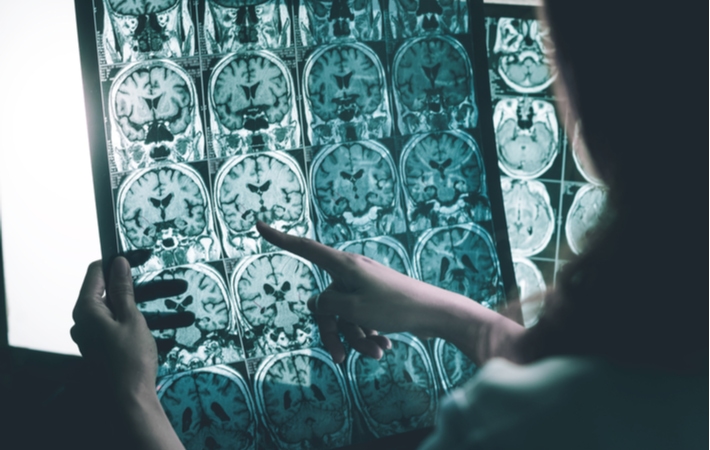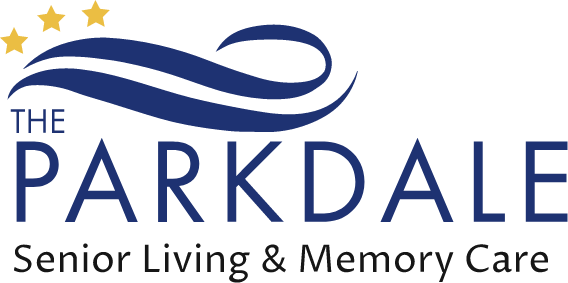Alzheimer’s and dementia can develop for years without showing visible symptoms. With how elusive these diseases can be, how do doctors detect them?
Continue reading to learn more about Alzheimer’s, including how professionals can diagnose this disease.
What Is Alzheimer’s?
Alzheimer’s disease is a disorder where the brain begins to shrink due to brain cell loss. It’s a progressive disease affecting approximately 5.8 million Americans. Someone with Alzheimer’s gradually struggles to live alone as they lose their thinking, social, and behavioral skills.
It’s common to assume Alzheimer’s only affects someone’s memory, but this disease impacts several aspects of daily life. Everyday tasks become harder with time until someone struggles to care for their needs. Someone may not notice any decline in their cognitive abilities at first, but Alzheimer’s leads to more severe symptoms.
Someone with Alzheimer’s disease may experience:
- Disorientation
- Mood & behavioral changes
- Confusion about events, time, & place
- Unjustified suspicion about family & friends
- Memory loss
- Difficulty speaking, swallowing, & walking
Understanding Dementia
Alzheimer’s is a form of dementia, a general term for several medical conditions affecting someone’s cognitive abilities. While someone may struggle with memory and daily tasks as they grow older, dementia is not a normal part of aging.
Damage to the brain cells causes dementia, affecting how brain cells communicate with each other. As dementia progresses, it affects different parts of the brain, leading to that region of the brain struggling to carry out its normal functions. Changes in cognitive function are typically permanent, depending on their cause.
Alzheimer’s accounts for approximately 60–80% of dementia cases. This disease progresses through 7 stages as it affects someone’s brain function:
- Asymptomatic
- Basic memory loss
- Noticeable difficulties
- Further cognitive impairment
- Decreased independence
- Severe cognitive impairment
- Lack of physical control
Someone may not show symptoms of Alzheimer’s for almost a decade after brain damage begins. As this disease progresses, symptoms become more prominent until someone struggles to care for their daily needs. Noticing one of the earliest symptoms of Alzheimer’s, memory problems, in you or a loved one can help diagnose this disease.

How Do Doctors Diagnose Alzheimer’s?
Several diagnostic tools and methods can help doctors diagnose Alzheimer’s disease. The methods used may vary depending on the doctor, but many take a comprehensive approach to identify this disease. A combination of physical and neurological tests can help diagnose Alzheimer’s.
Doctors may use any of the following to diagnose Alzheimer’s:
Review of Medical History
A doctor may ask the person experiencing symptoms or a family member about their overall health, prescription or over-the-counter drug use, diet, lifestyle, changes in behavior or personality, or their ability to complete daily activities.
Psychiatric Evaluation
A psychiatric evaluation can help a doctor determine if depression or another mental health problem is causing Alzheimer’s-like symptoms.
Medical Testing
Testing for Alzheimer’s can involve several diagnostic tests. A doctor may conduct memory, problem-solving, attention, counting, and language tests to evaluate someone’s cognitive function. Additionally, they may use blood, urine, or other standard tests to identify other possible causes of these symptoms.
Brain Scans
A brain scan can help support an Alzheimer’s diagnosis or eliminate potential causes of dementia symptoms. A doctor may use a computed tomography (CT), magnetic resonance imaging (MRI), or positron emission tomography (PET) to scan the brain and diagnose Alzheimer’s.
How to Prepare for Your Doctor’s Appointment
It can be a nerve-wracking experience if you or a loved one have an appointment to discuss the possibility of Alzheimer’s. While your doctor will handle the necessary tests and evaluations, you can help prepare for the appointment.
Your doctor will likely ask many questions about you or your loved one’s medical history. Gathering relevant information can help your doctor complete a thorough examination. Consider bringing the following information to your appointment:
- Health-related changes, such as mood, memory, & behavior
- Past & current medical problems, including family history
- Currently used prescription & over-the-counter medications
- Regularly used vitamins or supplements
While Alzheimer’s can progress symptom-free for years, several symptoms can arise as this disease continues to develop. You or a loved one may experience memory loss that disrupts daily life, difficulty planning or solving problems, or trouble completing familiar tasks.
Additionally, confusion with dates, difficulty with visual tasks, problems with speaking, misplacing things, and decreased judgment are Alzheimer’s concerns.
The Benefits of an Early Diagnosis
Unfortunately, there is no current cure for Alzheimer’s. However, an early diagnosis can still benefit you or your loved one. Treatments may help slow cognitive decline for those living with early Alzheimer’s.
Besides treatment, an early diagnosis gives you or your loved one time to plan for the future, such as legal and financial decisions and care options when this disease progresses.
Preparing for the Future with Memory Care
It can be difficult to care for yourself when Alzheimer’s progresses into later stages. Independent living can be a struggle, but options exist to make everyday life easier for you or your loved one.
Memory care helps older adults with Alzheimer’s and dementia live with as much independence as possible. Support is available 24/7 for daily activities like eating, dressing, bathing, grooming, and anything else residents need help with.
Besides daily support, memory care communities have thoughtful designs crafted for the needs of those with cognitive impairment. This lifestyle helps someone live a healthy and engaging lifestyle with the daily support they need.
Contact your local community if you’re interested in memory care for you or a loved one. It’s never too early to plan for the future.



